‘Tales from the Scarecrow: The Soil’
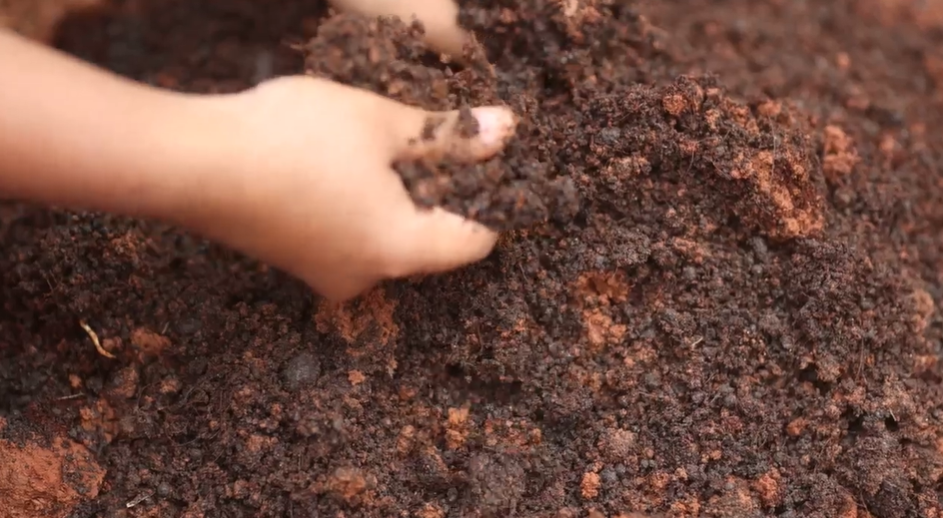
In the first part of our series for World Food Day celebrations, we aim to dig and delve deeper into the thought ‘your food is as good as your soil’, and unearth some nourishing extracts of knowledge and awareness.
The black and green scarecrow, as everyone knows, stands still with a bird on his hat and straw everywhere. At first glance, you may not think much of him, but do not mistake his sadness for stolidity. Through infinite seasons he has seen infinite possibilities of harmonization between the farmer, the soil and the livestock be reduced to dirt by the ploughs of our pride.
And although his head does not think and his arms don’t move, if you were to walk up to him and say ‘Did you know, you are what you eat?, he would probably laugh and say ‘Well, in that case, you are chapatis, rice, dals and vegetables along with Dichloro Diphenyl Trichloroethane (DDT), Benzene Hexachloride (BHC), malathion and endosulfan.
Now that is something that’s hard to digest, quite literally.
It’s extremely unfortunate yet not surprising that our agriculture continues to be a big gamble, and the money earmarked for agriculture development gets systematically siphoned off. Administrative decentralisation, with its lofty ideals notwithstanding, has helped only breed corruption in villages, and so the farmers are left with meagre resources which push them towards antediluvian agrarian practices such as spraying widely used toxic pesticides.
The result? We Indians are consuming food laced with some of the highest amounts of toxic pesticide residues in the world – almost 40 times more than the average westerner. Moreover, the situation in our agricultural hotbeds is even worse. Five decades after the Green Revolution, Punjab’s soil is deeply poisoned with a variety of pesticides – insecticides, fungicides, weedicides, herbicides etc. that not only does the state have the highest cancer rate in the country, but also operates a train popularly known as the ‘Cancer Train’, which transports 100 cancer-affected people (mostly farmers) to Bikaner for treatment everyday.
And there are more reasons why the Sixth mass extinction event in our planet’s history is already underway. The archaic practice of plowing and tilling the soil continues to this day, which — According to the United Nations — will lead to the destruction of the world’s remaining topsoil within 60 years.
In other words, unless we find a way to save our soils, we have 60 harvests left.
Perhaps that explains the sadness of the scarecrow. As a passive yet objective viewer, he is the figurative embodiment of a terrifying prophecy that awaits us unless we take care of our soil. Yes, we too might become scarecrows, but there is one difference: unlike him, we won’t have any harvests to protect.
At Akshayakalpa, it is our goal to bring back a smile to Mother Earth, her children, and maybe even the scarecrow! As a team, we were completely awestruck by the fact that in every handful of healthy soil, there are more organisms than the number of people who’ve ever lived on planet Earth! Therefore, we realize the importance of our planet’s soil, and the immense role it plays in sequestering greenhouse gases, replenishing our freshwater supplies, and feeding the world.
Accordingly, we practice closed-loop soil management systems. Our farms do not require external elements to sustain. The cow dung is used to produce methane gas, which is then used to generate electricity for day to day activities at the farm. Slurry from the biogas goes back to the soil as manure.
On the upcoming event for World Food Day, it is our hope that we as a collective not only accept the gifts of Mother Earth with a sense of ethicality, sustainability and gratitude, but emulate her teachings of empathy and compassion.
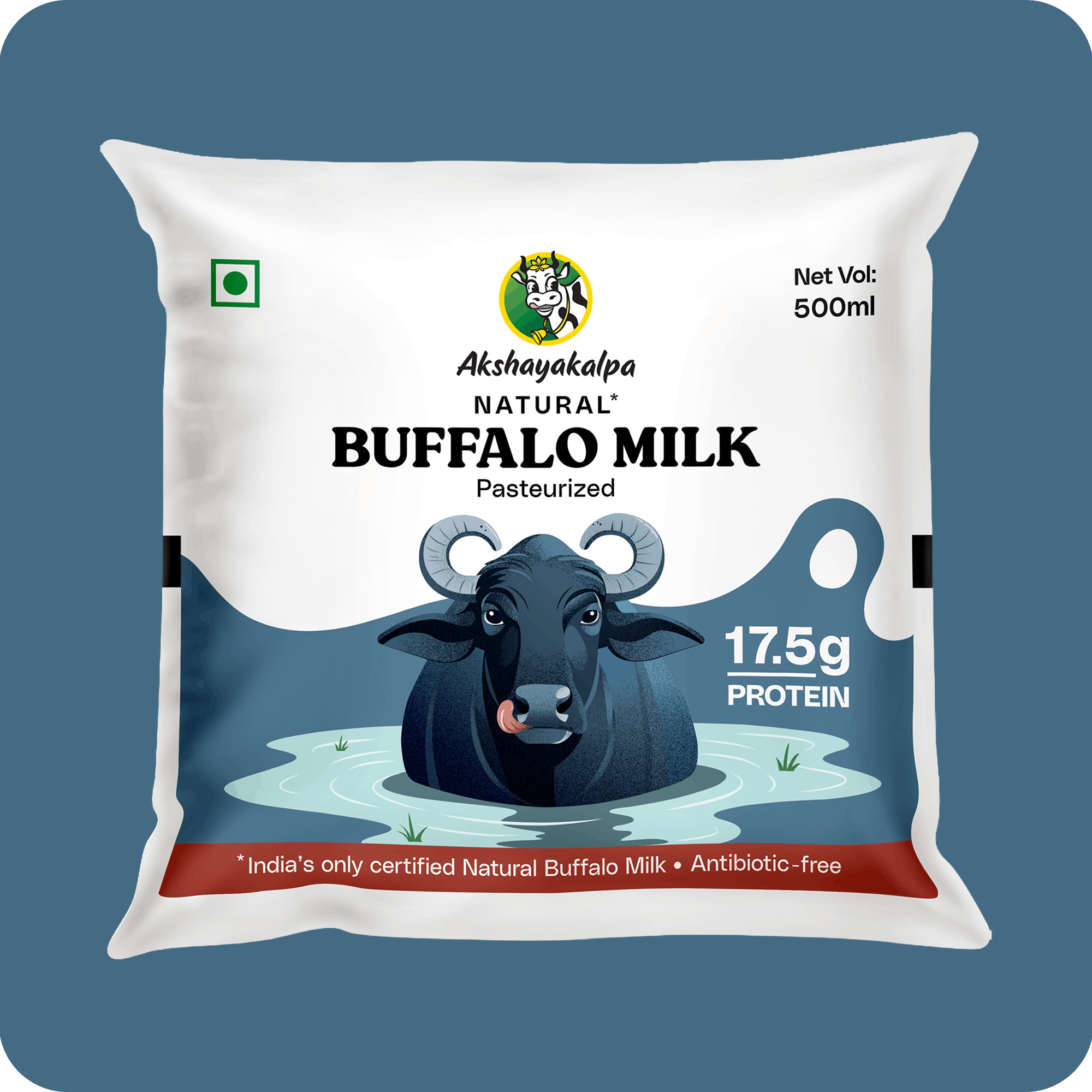
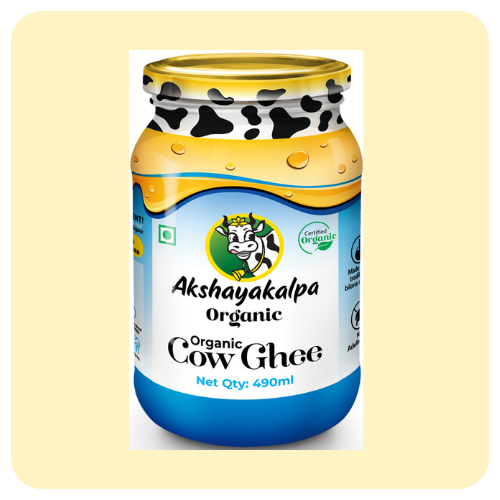
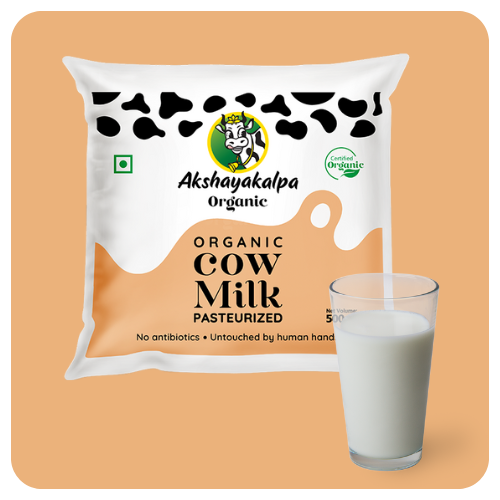

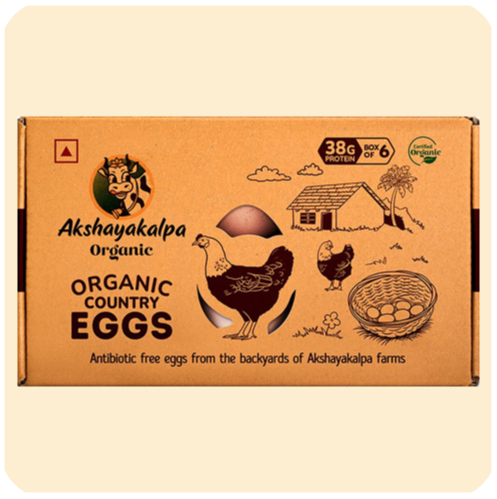
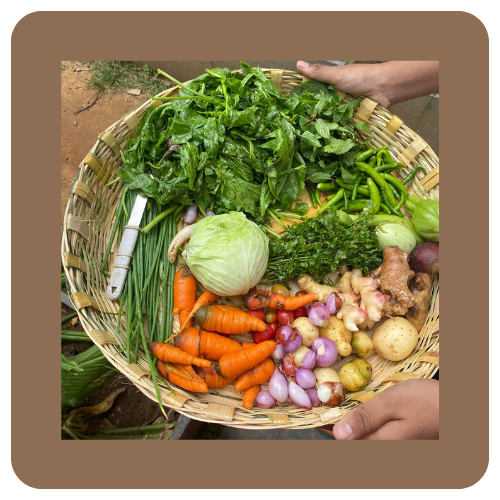
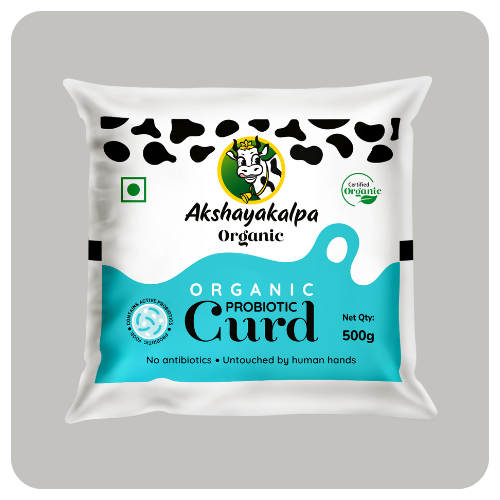

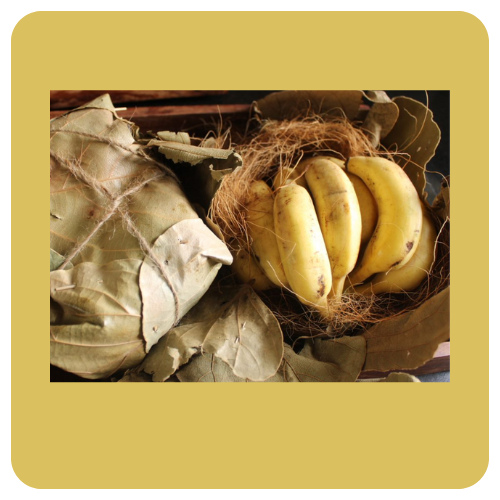
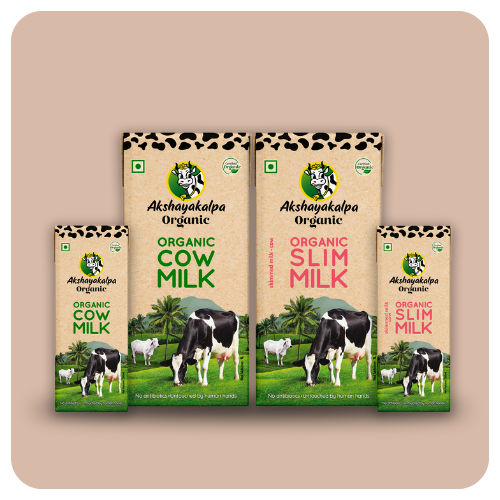
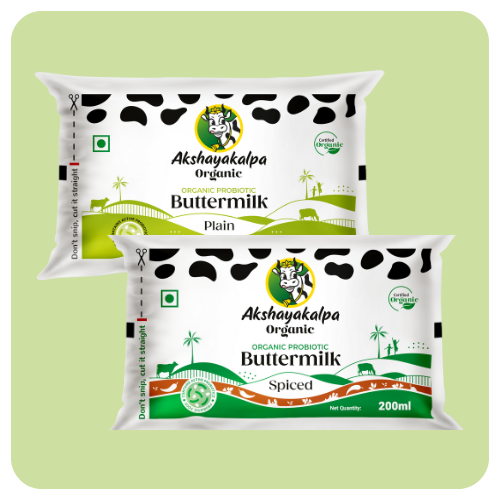
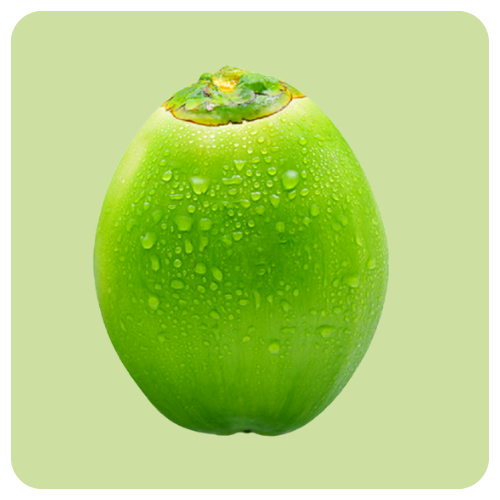


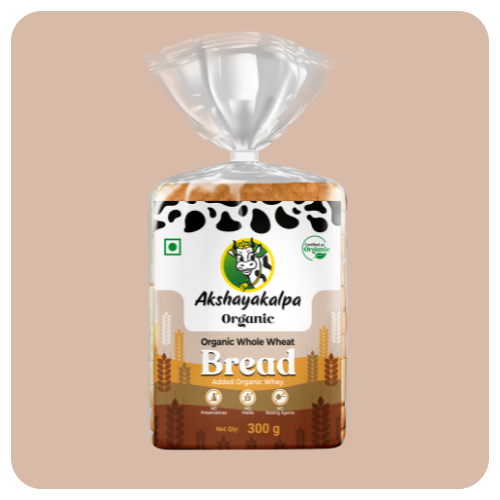




Fantastic write up . Cudos to your efforts as a responsible corporate citizen
Loved the way you think Shasi and i most say you have an excellent team which acts as pillar of your success… I like your products although started to use recently and just like to ask should we expect organic vegetables,pulses sooner ?
Wonderful paintings! That is the type of info that are supposed to be shared around the internet. Shame on Google for not positioning this put up higher! Come on over and consult with my site . Thank you =)
Heya i am for the first time here. I found this board and I find It really useful & it helped me out much. I hope to present one thing again and aid others such as you helped me.
As a Newbie, I am continuously searching online for articles that can benefit me. Thank you
I have not checked in here for a while since I thought it was getting boring, but the last few posts are great quality so I guess I抣l add you back to my everyday bloglist. You deserve it my friend 🙂
I think other web site proprietors should take this web site as an model, very clean and great user genial style and design, let alone the content. You are an expert in this topic!
Thank you for the sensible critique. Me & my neighbor were just preparing to do a little research on this. We got a grab a book from our area library but I think I learned more from this post. I am very glad to see such magnificent information being shared freely out there.
Well I definitely enjoyed studying it. This subject procured by you is very effective for correct planning.
Hello there, You’ve performed a fantastic job. I抣l certainly digg it and for my part suggest to my friends. I’m sure they’ll be benefited from this web site.
Usually I do not read article on blogs, but I would like to say that this write-up very forced me to try and do it! Your writing style has been surprised me. Thanks, quite nice post.
It抯 actually a nice and useful piece of information. I am happy that you simply shared this useful information with us. Please keep us up to date like this. Thank you for sharing.
Awesome article.Really looking forward to read more. Great.
There are some fascinating deadlines in this article however I don抰 know if I see all of them center to heart. There is some validity however I will take maintain opinion until I look into it further. Good article , thanks and we would like extra! Added to FeedBurner as properly
This is a topic which is near to my heart… Cheers! Exactly
where are your contact details though?
Very quickly this web site will be famous among
all blogging and site-building people, due to it’s pleasant posts
Pretty nice post. I simply stumbled upon your
weblog and wanted to say that I’ve really enjoyed surfing around your weblog posts.
In any case I’ll be subscribing to your rss feed and I’m hoping you write once
more very soon!
These are truly fantastic ideas in on the topic of blogging.
You have touched some good points here. Any way keep up wrinting.
Wow, great article.Really looking forward to read more. Great.
Really enjoyed this post.Really thank you! Keep writing. makaberzux
I am extremely impressed with your writing skills as well as with the layout on your weblog. Is this a paid theme or did you modify it yourself? Anyway keep up the nice quality writing, it’s rare to see a great blog like this one nowadays..
It’s hard to come by well-informed people in this particular topic, however, you seem like you know what you’re talking about! Thanks
Great write-up, I’m regular visitor of one’s blog, maintain up the excellent operate, and It’s going to be a regular visitor for a long time.
When I originally commented I clicked the -Notify me when new comments are added- checkbox and now each time a comment is added I get four emails with the same comment. Is there any way you can remove me from that service? Thanks!
As I website possessor I conceive the articles here is really superb, appreciate it for your efforts.
Normally I do not read post on blogs, but I wish to say that this write-up very forced me to try and do so! Your writing style has been surprised me. Thanks, very nice article.
Hi! Someone in my Myspace group shared this website with us so I came to look it over. I’m definitely enjoying the information. I’m bookmarking and will be tweeting this to my followers! Fantastic blog and excellent design and style.
Hey there, You have done an incredible job. I will definitely digg it and personally suggest to my friends. I am sure they will be benefited from this site.
I really like your blog.. very nice colors & theme. Did you make this website yourself or did you hire someone to do it for you? Plz reply as I’m looking to create my own blog and would like to find out where u got this from. kudos
I was just searching for this information for some time. After 6 hours of continuous Googleing, finally I got it in your site. I wonder what is the lack of Google strategy that don’t rank this type of informative sites in top of the list. Usually the top sites are full of garbage.
Really nice pattern and excellent subject material, hardly anything else we need : D.
My brother recommended I might like this website. He used to be totally right. This submit truly made my day. You can not consider just how so much time I had spent for this info! Thank you!
Pretty! This was a really wonderful post. Thank you for your provided information.
Howdy! This post could not be written any better! Reading this post reminds me of my good old room mate! He always kept talking about this. I will forward this write-up to him. Fairly certain he will have a good read. Thanks for sharing!
With havin so much content do you ever run into any problems of plagorism or copyright violation? My site has a lot of completely unique content I’ve either created myself or outsourced but it looks like a lot of it is popping it up all over the web without my authorization. Do you know any solutions to help prevent content from being stolen? I’d truly appreciate it.
It’s onerous to search out educated folks on this topic, however you sound like you realize what you’re speaking about! Thanks
I’ve been absent for some time, but now I remember why I used to love this site. Thank you, I¦ll try and check back more frequently. How frequently you update your website?
I am so grateful for your blog post.Thanks Again. Awesome.
I think this site has some real good info for everyone. “Dealing with network executives is like being nibbled to death by ducks.” by Eric Sevareid.
Hi my friend! I wish to say that this article is awesome, nice written and include almost all important infos. I’d like to see more posts like this.
Simply wish to say your article is as surprising. The clearness in your post is just nice and i could assume you are an expert on this subject. Fine with your permission allow me to grab your RSS feed to keep updated with forthcoming post. Thanks a million and please carry on the enjoyable work.
Hey there would you mind letting me know which hosting company you’re using? I’ve loaded your blog in 3 completely different internet browsers and I must say this blog loads a lot faster then most. Can you suggest a good hosting provider at a fair price? Thanks a lot, I appreciate it!
You have mentioned very interesting details! ps decent internet site. “In music the passions enjoy themselves.” by Friedrich Wilhelm Nietzsche.
I’m impressed, I need to say. Actually rarely do I encounter a blog that’s each educative and entertaining, and let me inform you, you have hit the nail on the head. Your concept is excellent; the difficulty is something that not sufficient people are talking intelligently about. I am very happy that I stumbled across this in my search for something relating to this.
Looking forward to reading more. Great blog post.Much thanks again.
Very interesting topic, appreciate it for putting up.
I was suggested this web site by my cousin. I am not sure whether this post is written by him as no one else know such detailed about my difficulty. You’re incredible! Thanks!
I keep listening to the news broadcast lecture about receiving free online grant applications so I have been looking around for the best site to get one. Could you advise me please, where could i get some?
you’re really a good webmaster. The website loading speed is incredible. It seems that you’re doing any unique trick. Moreover, The contents are masterpiece. you have done a magnificent job on this topic!
Hi! I know this is kinda off topic however I’d figured I’d ask. Would you be interested in trading links or maybe guest authoring a blog post or vice-versa? My website discusses a lot of the same subjects as yours and I believe we could greatly benefit from each other. If you happen to be interested feel free to shoot me an e-mail. I look forward to hearing from you! Superb blog by the way!
Nice blog here! Also your web site loads up fast! What host are you using? Can I get your affiliate link to your host? I wish my website loaded up as fast as yours lol
Valuable information. Lucky me I found your site by accident, and I’m shocked why this accident did not happened earlier! I bookmarked it.
I am often to blogging and i really appreciate your content. The article has really peaks my interest. I am going to bookmark your site and keep checking for new information.
I will right away clutch your rss as I can not find your email subscription link or newsletter service. Do you’ve any? Please permit me realize so that I may just subscribe. Thanks.
Keep up the wonderful work, I read few blog posts on this web site and I believe that your web blog is real interesting and contains circles of superb info .
My brother suggested I might like this website. He was entirely right. This post truly made my day. You cann’t imagine simply how much time I had spent for this information! Thanks!
I used to be suggested this blog by means of my cousin. I am not sure whether this put up is written by him as nobody else know such specific about my difficulty. You’re amazing! Thanks!
WONDERFUL Post.thanks for share..more wait .. …
Howdy! I could have sworn I’ve visited this site before but after going through many of the articles I realized it’s new to me. Nonetheless, I’m certainly happy I came across it and I’ll be book-marking it and checking back often.
Excellent post it is very helpful and knowledgeable content good work keep it up.
Great post.Really thank you! Cool.
An outstanding share! I’ve just forwarded this onto a colleague who has been doing a little homework on this. And he in fact bought me lunch due to the fact that I stumbled upon it for him… lol. So let me reword this…. Thank YOU for the meal!! But yeah, thanks for spending some time to talk about this topic here on your blog.
Nice post. I learn something totally new and challenging on websites I stumbleupon every day. It will always be exciting to read articles from other writers and practice something from other web sites.
I dugg some of you post as I cerebrated they were invaluable handy
This design is wicked! You obviously know how to keep a reader amused. Between your wit and your videos, I was almost moved to start my own blog (well, almost…HaHa!) Fantastic job. I really loved what you had to say, and more than that, how you presented it. Too cool!
Some genuinely nice stuff on this site, I love it.
Nice blog here! Also your website loads up very fast! What host are you using? Can I get your affiliate link to your host? I wish my web site loaded up as fast as yours lol
Wow! Thank you! I continuously needed to write on my blog something like that. Can I implement a fragment of your post to my site?
Hiya, I’m really glad I have found this information. Today bloggers publish just about gossips and web and this is really frustrating. A good site with exciting content, this is what I need. Thanks for keeping this website, I’ll be visiting it. Do you do newsletters? Can’t find it.
This is a topic which is close to my heart… Take care! Exactly where can I find the contact details for questions?
Good blog you’ve got here.. It’s difficult to find excellent writing like yours these days. I really appreciate individuals like you! Take care!!
This is one awesome blog article.Really looking forward to read more. Keep writing.
Major thanks for the article post.Really thank you! Want more.
Right here is the perfect web site for anybody who hopes to find out about this topic. You realize so much its almost hard to argue with you (not that I really will need to…HaHa). You certainly put a new spin on a topic that’s been discussed for ages. Excellent stuff, just wonderful.
I think this is a real great blog.Really looking forward to read more. Cool.
Its like you read my mind! You seem to know a lot about this, like you wrote the book in it or something. I think that you could do with a few pics to drive the message home a little bit, but other than that, this is wonderful blog. A great read. I will certainly be back.
Excellent read, I just passed this onto a colleague who was doing a little research on that. And he just bought me lunch since I found it for him smile So let me rephrase that: Thank you for lunch! “The guy with the biggest stomach will be the first to take off his shirt at a baseball game.” by Glenn Dickey.
Thankyou for helping out, great information.
The very next time I read a blog, Hopefully it doesn’t disappoint me just as much as this one. After all, Yes, it was my choice to read, but I actually believed you would probably have something useful to say. All I hear is a bunch of moaning about something you could fix if you were not too busy searching for attention.
Hello there! This article could not be written much better! Reading through this article reminds me of my previous roommate! He continually kept preaching about this. I’ll send this article to him. Fairly certain he will have a great read. I appreciate you for sharing!
Very interesting information!Perfect just what I was looking for! “I have a hundred times wished that one could resign life as an officer resigns a commission.” by Robert Burns.
A motivating discussion is definitely worth comment. There’s no doubt that that you should write more about this subject, it may not be a taboo subject but usually people do not speak about these issues. To the next! Kind regards.
I am glad to be a visitor of this gross website! , regards for this rare information! .
I see something really special in this site.
I have not checked in here for some time since I thought it was getting boring, but the last several posts are good quality so I guess I will add you back to my everyday bloglist. You deserve it my friend 🙂
Hey! I just wanted to ask if you ever have any problems with hackers? My last blog (wordpress) was hacked and I ended up losing several weeks of hard work due to no back up. Do you have any methods to protect against hackers?
Utterly indited subject matter, Really enjoyed looking through.
Hello, you used to write wonderful, but the last few posts have been kinda boring… I miss your great writings. Past few posts are just a bit out of track! come on!
obviously like your web-site however you have to take a look at the spelling on several of your posts. A number of them are rife with spelling problems and I find it very troublesome to tell the truth however I?¦ll certainly come again again.
wow, awesome article post.Really thank you! Want more.
You have brought up a very excellent points, thankyou for the post.
Whats Going down i’m new to this, I stumbled upon this I have found It positively useful and it has aided me out loads. I hope to give a contribution & assist other customers like its aided me. Good job.
I am no longer sure the place you are getting your info, but great topic. I needs to spend a while learning more or understanding more. Thanks for magnificent info I was on the lookout for this information for my mission.
Regards for all your efforts that you have put in this. very interesting information.
Keep functioning ,great job!
I love your blog.. very nice colors & theme. Did you create this website yourself? Plz reply back as I’m looking to create my own blog and would like to know wheere u got this from. thanks
I wanted to construct a quick remark to express gratitude to you for those superb information you are giving here. My extensive internet search has now been compensated with reliable strategies to go over with my company. I would assert that many of us readers actually are undoubtedly lucky to exist in a great place with so many outstanding professionals with insightful opinions. I feel rather fortunate to have discovered your web site and look forward to really more fun minutes reading here. Thank you once more for everything.
Great post. I am facing a couple of these problems.
Hey very cool blog!! Guy .. Excellent .. Amazing .. I’ll bookmark your web site and take the feeds additionally…I am satisfied to seek out a lot of helpful info right here within the submit, we want work out extra strategies on this regard, thank you for sharing.
Whats Taking place i am new to this, I stumbled upon this I have discovered It positively helpful and it has aided me out loads. I am hoping to give a contribution & aid other users like its helped me. Great job.
I just could not go away your website before suggesting that I extremely loved the standard information an individual supply for your guests? Is going to be back often in order to check up on new posts.
Hello.This post was really motivating, particularly since I was looking for thoughts on this subject last week.
I have been surfing online more than three hours nowadays, but I never found any attention-grabbing article like yours. It is beautiful price enough for me. In my opinion, if all website owners and bloggers made excellent content as you did, the internet will be much more useful than ever before.
Hello, Neat post. There is a problem with your site in internet explorer, may test this?K IE still is the market leader and a big element of other people will leave out your great writing due to this problem.
Very interesting information!Perfect just what I was searching for!
After all, what a great site and informative posts, I will upload inbound link – bookmark this web site? Regards, Reader.
I am not certain where you’re getting your information, but great topic. I must spend some time learning more or figuring out more. Thanks for fantastic info I was in search of this information for my mission.
Aw, this was a really nice post. In concept I would like to put in writing like this additionally – taking time and actual effort to make a very good article… however what can I say… I procrastinate alot and certainly not appear to get one thing done.
Its good as your other posts : D, thankyou for putting up.
he blog was how do i say it… relevant, finally something that helped me. Thanks
You can certainly see your skills in the work you write. The arena hopes for more passionate writers like you who are not afraid to mention how they believe. At all times follow your heart.
Yeah bookmaking this wasn’t a risky determination great post! .
Do you mind if I quote a couple of your articles as long as I provide credit and sources back to your website? My website is in the exact same niche as yours and my users would definitely benefit from a lot of the information you present here. Please let me know if this alright with you. Regards!
I love your blog.. very nice colors & theme. Did you create this website yourself or did you hire someone to do it for you? Plz answer back as I’m looking to create my own blog and would like to find out where u got this from. thanks a lot
Appreciate it for this tremendous post, I am glad I observed this website on yahoo.
Its excellent as your other articles : D, thankyou for posting. “Love is like an hourglass, with the heart filling up as the brain empties.” by Jules Renard.
Thanks again for the article post.Really thank you! Will read on…
Nice post. I learn something more challenging on different blogs everyday. It will always be stimulating to read content from other writers and practice a little something from their store. I’d prefer to use some with the content on my blog whether you don’t mind. Natually I’ll give you a link on your web blog. Thanks for sharing.
You’re so awesome! I do not think I’ve truly read a single thing like that before. So good to find another person with some unique thoughts on this subject. Really.. thanks for starting this up. This web site is something that is required on the web, someone with some originality.
Hmm it looks like your blog ate my first comment (it was super long) so I guess I’ll just sum it up what I wrote and say, I’m thoroughly enjoying your blog. I as well am an aspiring blog writer but I’m still new to the whole thing. Do you have any helpful hints for novice blog writers? I’d definitely appreciate it.
You could certainly see your skills in the work you write. The world hopes for more passionate writers like you who aren’t afraid to say how they believe. Always follow your heart.
Whats Going down i’m new to this, I stumbled upon this I’ve discovered It absolutely useful and it has aided me out loads. I am hoping to contribute & assist other customers like its aided me. Great job.
I think this is among the most significant info for me. And i’m glad reading your article. But wanna remark on some general things, The website style is great, the articles is really great : D. Good job, cheers
I really like your writing style, great info, regards for posting :D. “Every moment of one’s existence one is growing into more or retreating into less.” by Norman Mailer.
Throughout the awesome design of things you actually receive a B- with regard to hard work. Where you lost everybody was first in your specifics. As as the maxim goes, details make or break the argument.. And that could not be more true here. Having said that, let me inform you what exactly did do the job. Your writing can be highly convincing which is possibly why I am making an effort in order to comment. I do not make it a regular habit of doing that. Next, despite the fact that I can certainly see the jumps in reasoning you come up with, I am not necessarily sure of how you seem to connect the details that produce the final result. For the moment I will yield to your point but wish in the future you link your dots much better.
[url=http://slkjfdf.net/]Sepifegi[/url] Atehupav fmg.pitn.akshayakalpa.org.rwj.xn http://slkjfdf.net/
Great website! I am loving it!! Will be back later to read some more. I am taking your feeds also.
I am not sure the place you’re getting your information, but good topic. I needs to spend some time finding out more or working out more. Thank you for excellent info I was searching for this information for my mission.
[url=http://slkjfdf.net/]Ayizavif[/url] Omikece qzt.ekuw.akshayakalpa.org.maa.yf http://slkjfdf.net/
There may be noticeably a bundle to know about this. I assume you made certain nice points in features also.
hello!,I really like your writing very a lot! share we communicate extra approximately your article on AOL? I need a specialist in this house to solve my problem. May be that’s you! Having a look forward to look you.
Good write-up, I?¦m regular visitor of one?¦s web site, maintain up the nice operate, and It’s going to be a regular visitor for a long time.
Hi, just required you to know I he added your site to my Google bookmarks due to your layout. But seriously, I believe your internet site has 1 in the freshest theme I??ve came across. It extremely helps make reading your blog significantly easier.
I¦ve learn a few good stuff here. Certainly value bookmarking for revisiting. I surprise how much effort you set to create this kind of fantastic informative website.
An interesting discussion is worth comment. I think that you should write more on this topic, it might not be a taboo subject but generally people are not enough to speak on such topics. To the next. Cheers
After study a few of the blog posts on your website now, and I truly like your way of blogging. I bookmarked it to my bookmark website list and will be checking back soon. Pls check out my web site as well and let me know what you think.
Simply wish to say your article is as astonishing. The clarity on your post is just nice and that i can assume you’re a professional in this subject. Fine with your permission allow me to snatch your feed to stay updated with approaching post. Thank you one million and please keep up the rewarding work.
Hi there! This post couldn’t be written any better! Reading through this post reminds me of my previous room mate! He always kept talking about this. I will forward this article to him. Pretty sure he will have a good read. Thank you for sharing!
Thank you ever so for you blog.Thanks Again. Want more.
Nice post. I learn something more challenging on different blogs everyday. It will always be stimulating to read content from other writers and practice a little something from their store. I’d prefer to use some with the content on my blog whether you don’t mind. Natually I’ll give you a link on your web blog. Thanks for sharing.
Great beat ! I wish to apprentice while you amend your site, how can i subscribe for a blog site? The account aided me a acceptable deal. I had been tiny bit acquainted of this your broadcast provided bright clear idea
you’re really a good webmaster. The site loading speed is amazing. It sort of feels that you are doing any distinctive trick. Also, The contents are masterwork. you have done a magnificent activity in this topic!
Great blog post.Thanks Again. Really Great.
Your style is so unique in comparison to other people I’ve read stuff from. Thank you for posting when you’ve got the opportunity, Guess I’ll just bookmark this page.
Peptides are short chain amino acid monomers linked by a peptide bond buy generic cialis
Im grateful for the blog post.Much thanks again. Great.
Hey There. I found your blog using msn. This is an extremely well written article. I will make sure to bookmark it and return to read more of your useful info. Thanks for the post. I will certainly return.
Thanks for sharing, this is a fantastic blog post.Much thanks again. Fantastic.
I am writing to let you understand of the fine encounter my wife’s child gained checking your web page. She came to understand some issues, most notably what it is like to possess an amazing teaching mood to let the others effortlessly have an understanding of some problematic issues. You undoubtedly did more than her desires. Thank you for churning out the insightful, healthy, informative and even unique guidance on this topic to Kate.
I really liked your post.Really looking forward to read more.
Hello.This article was extremely motivating, especially because I was browsing for thoughts on this subject last Wednesday.
Thank you for the good writeup. It if truth be told was a entertainment account it. Glance complex to more added agreeable from you! However, how could we keep in touch?
An interesting discussion is worth comment. I think that you should write more on this topic, it might not be a taboo subject but generally people are not enough to speak on such topics. To the next. Cheers
Your style is so unique in comparison to other folks I have read stuff from. Many thanks for posting when you’ve got the opportunity, Guess I will just bookmark this site.
Nice post. I used to be checking continuously this weblog and I’m inspired! Extremely useful info specially the final part 🙂 I take care of such information a lot. I used to be seeking this certain information for a very long time. Thank you and good luck.
I really wanted to write a simple message to be able to appreciate you for the stunning guidelines you are writing on this website. My time consuming internet research has finally been paid with extremely good strategies to go over with my pals. I ‘d admit that we website visitors actually are unequivocally blessed to dwell in a fantastic place with many marvellous people with useful things. I feel really happy to have used your web pages and look forward to tons of more thrilling moments reading here. Thanks once again for everything.
I would like to thank you for the efforts you’ve put in writing this site. I am hoping the same high-grade website post from you in the upcoming as well. In fact your creative writing skills has encouraged me to get my own website now. Actually the blogging is spreading its wings quickly. Your write up is a great example of it.
There is perceptibly a bunch to identify about this. I consider you made certain good points in features also.
Your place is valueble for me. Thanks!…
I appreciate, cause I found just what I was looking for. You have ended my 4 day long hunt! God Bless you man. Have a great day. Bye
Wonderful blog! I found it while searching on Yahoo News. Do you have any suggestions on how to get listed in Yahoo News? I’ve been trying for a while but I never seem to get there! Thanks
I like this site very much, Its a very nice office to read and receive information.
I’ve recently started a web site, the information you offer on this web site has helped me tremendously. Thank you for all of your time & work.
You could definitely see your expertise within the work you write. The sector hopes for even more passionate writers like you who aren’t afraid to say how they believe. All the time go after your heart.
My spouse and i were very delighted when Emmanuel managed to deal with his investigations out of the precious recommendations he got out of your web site. It is now and again perplexing just to continually be giving freely facts which often people have been selling. And we also do understand we’ve got the website owner to give thanks to for that. These illustrations you’ve made, the simple web site menu, the relationships you give support to promote – it is mostly fabulous, and it is letting our son in addition to our family recognize that that topic is satisfying, which is extremely fundamental. Many thanks for the whole lot!
I want to express appreciation to the writer just for rescuing me from this situation. Because of checking through the online world and meeting tips that were not productive, I was thinking my entire life was done. Being alive minus the approaches to the issues you’ve sorted out all through your report is a serious case, and ones that might have in a wrong way damaged my career if I hadn’t come across your web site. Your own training and kindness in dealing with all the things was priceless. I don’t know what I would’ve done if I had not come upon such a subject like this. It’s possible to at this time relish my future. Thanks a lot very much for this high quality and results-oriented guide. I won’t be reluctant to recommend the website to any person who wants and needs support on this subject.
Normally I do not read post on blogs, but I wish to say that this write-up very forced me to check out and do so! Your writing style has been surprised me. Thanks, quite great post.
Hello there! This post couldn’t be written much better! Going through this post reminds me of my previous roommate! He always kept talking about this. I most certainly will send this post to him. Fairly certain he’s going to have a great read. Many thanks for sharing!
Good write-up, I’m regular visitor of one’s site, maintain up the nice operate, and It is going to be a regular visitor for a long time.
I like what you guys are up also. Such smart work and reporting! Carry on the excellent works guys I’ve incorporated you guys to my blogroll. I think it’ll improve the value of my site :).
What i don’t understood is if truth be told how you are not really a lot more well-favored than you might be now. You are so intelligent. You already know thus considerably on the subject of this matter, made me in my opinion consider it from so many numerous angles. Its like men and women aren’t involved until it?¦s one thing to do with Girl gaga! Your personal stuffs outstanding. All the time maintain it up!
I’m impressed, I must say. Rarely do I come across a blog that’s both equally educative and entertaining, and let me tell you, you’ve hit the nail on the head. The issue is something too few folks are speaking intelligently about. Now i’m very happy I stumbled across this in my search for something concerning this.
What i do not realize is actually how you are no longer really much more smartly-preferred than you might be right now. You are so intelligent. You know thus significantly in the case of this subject, produced me in my view imagine it from so many numerous angles. Its like men and women aren’t involved except it is one thing to accomplish with Lady gaga! Your own stuffs outstanding. All the time care for it up!
There are certainly a whole lot of particulars like that to take into consideration. That is a great point to carry up. I provide the ideas above as basic inspiration but clearly there are questions just like the one you deliver up where a very powerful factor shall be working in trustworthy good faith. I don?t know if greatest practices have emerged round issues like that, but I’m sure that your job is clearly recognized as a good game. Both boys and girls really feel the affect of only a second’s pleasure, for the remainder of their lives.
What’s Happening i am new to this, I stumbled upon this I have found It absolutely useful and it has aided me out loads. I hope to contribute & help other users like its helped me. Great job.
Terrific work! This is the type of information that should be shared around the net. Shame on Google for not positioning this post higher! Come on over and visit my website . Thanks =)
wow, awesome article post. Great.
Hello there! Do you know if they make any plugins to safeguard against hackers? I’m kinda paranoid about losing everything I’ve worked hard on. Any suggestions?
Hello. excellent job. I did not imagine this. This is a impressive story. Thanks!
As I website possessor I think the content here is rattling great, thankyou for your efforts.
I know this if off topic but I’m looking into starting my own blog and was curious what all is needed to get setup? I’m assuming having a blog like yours would cost a pretty penny? I’m not very web smart so I’m not 100 certain. Any recommendations or advice would be greatly appreciated. Many thanks
I really appreciate this post. I’ve been looking all over for this! Thank goodness I found it on Bing. You’ve made my day! Thank you again!
It’s laborious to find educated people on this matter, however you sound like you realize what you’re speaking about! Thanks
I blog quite often and I truly appreciate your information. This article has really peaked my interest. I will bookmark your blog and keep checking for new details about once per week. I opted in for your Feed as well.
Wonderful paintings! This is the type of info that are supposed to be shared around the internet. Disgrace on the seek engines for not positioning this post upper! Come on over and talk over with my web site . Thank you =)
Thank you for the sensible critique. Me and my neighbor were just preparing to do some research on this. We got a grab a book from our area library but I think I learned more clear from this post. I’m very glad to see such excellent info being shared freely out there.
I cannot thank you enough for the blog.Really looking forward to read more. Keep writing.
I’m not that much of a internet reader to be honest but your sites really nice, keep it up! I’ll go ahead and bookmark your website to come back down the road. Many thanks
It’s actually a great and helpful piece of info. I am happy that you just shared this useful info with us. Please keep us informed like this. Thank you for sharing.
Yesterday, while I was at work, my cousin stole my iPad and tested to see if it can survive a 40 foot drop, just so she can be a youtube sensation. My iPad is now broken and she has 83 views. I know this is totally off topic but I had to share it with someone!
This is the right blog for anyone who wants to find out about this topic. You realize so much its almost hard to argue with you (not that I actually would want…HaHa). You definitely put a new spin on a topic thats been written about for years. Great stuff, just great!
Some really great articles on this website , thanks for contribution.
Hello. remarkable job. I did not anticipate this. This is a excellent story. Thanks!
he blog was how do i say it… relevant, finally something that helped me. Thanks
Good day! I simply wish to offer you a huge thumbs up for your excellent info you have got right here on this post. I am coming back to your website for more soon.
In this grand pattern of things you actually secure a B+ for effort. Exactly where you actually lost me personally ended up being on the particulars. As as the maxim goes, the devil is in the details… And it couldn’t be more true right here. Having said that, let me inform you just what exactly did deliver the results. The writing is certainly extremely persuasive and this is probably why I am taking the effort in order to comment. I do not make it a regular habit of doing that. 2nd, whilst I can certainly notice a leaps in reason you make, I am not sure of how you appear to connect your points which help to make your final result. For right now I will, no doubt subscribe to your issue but hope in the future you connect your facts much better.
It’s hard to search out knowledgeable people on this matter, however you sound like you know what you’re talking about! Thanks
I cannot thank you enough for the blog article.Really looking forward to read more. Really Great.
This is really interesting, You are a very skilled blogger. I have joined your rss feed and look forward to seeking more of your fantastic post. Also, I’ve shared your website in my social networks!
Valuable info. Lucky me I found your website by accident, and I’m shocked why this accident didn’t happened earlier! I bookmarked it.
A big thank you for your blog article.Really thank you! Really Great.
It’s hard to come by educated people about this subject, but you seem like you know what you’re talking about! Thanks
Wow, great blog article.Really looking forward to read more. Will read on…
You are a very intelligent person!
Fantastic article.Thanks Again. Great.
In the awesome scheme of things you actually receive an A just for hard work. Where you actually misplaced me personally was first on the particulars. You know, people say, the devil is in the details… And that couldn’t be more correct in this article. Having said that, let me reveal to you what exactly did give good results. The writing is actually rather engaging and that is possibly the reason why I am taking the effort to comment. I do not make it a regular habit of doing that. Secondly, although I can easily see the leaps in logic you come up with, I am definitely not confident of how you seem to unite your points which inturn help to make the conclusion. For the moment I will, no doubt subscribe to your point but hope in the foreseeable future you link your facts much better.
Thanks so much for the article post.Really looking forward to read more. Really Great.
Major thankies for the article.Thanks Again. Fantastic.
Under the post-handover payment plan in Dubai, businesses are responsible for making a one-time payment to their employees after they have completed their work. This payment is typically made within 30 days of the work being completed. The benefit of this system is that businesses can avoid late payments, which can often lead to problems with employee morale. In addition, this system can help businesses save money on payroll processing fees.
Some people are not happy with the previous loan terms they were given by their lenders. As a result, they decide to refinance their housing loan in order to get more favorable terms. This usually happens when interest rates drop or the borrower’s financial situation improves. Basically Refinancing a housing loan is a new loan taken to replace an existing housing loan.
Good write-up, I am regular visitor of one抯 blog, maintain up the nice operate, and It’s going to be a regular visitor for a lengthy time.
Remarkable! Its in fact amazing post, I have got much clear idea about from this post.
I truly appreciate this post.Thanks Again. Awesome.
hello there and thank you in your information ?I have certainly picked up something new from proper here. I did then again expertise some technical issues using this site, as I skilled to reload the site a lot of instances prior to I could get it to load properly. I had been puzzling over if your web host is OK? Not that I am complaining, however sluggish loading circumstances times will sometimes have an effect on your placement in google and can injury your high quality score if ads and ***********|advertising|advertising|advertising and *********** with Adwords. Anyway I am including this RSS to my e-mail and can look out for a lot extra of your respective fascinating content. Ensure that you replace this once more soon..
I was recommended this website by my cousin. I am not sure whether this post is written by him as no one else know such detailed about my problem. You’re wonderful! Thanks!
Very informative article post.Much thanks again. Much obliged.
Hey, thanks for the blog post. Much obliged.
Great blog post.Much thanks again. Really Cool.
I like it whenever people come together and share ideas. Great blog, continue the good work!
Im grateful for the article.Much thanks again. Keep writing.
This page certainly has all the info I needed concerning this subject and didn’t know who to ask.
Good info. Lucky me I came across your blog by accident (stumbleupon). I have saved it for later!
I have seen plenty of useful items on your website about computers. However, I’ve the view that lap tops are still not nearly powerful adequately to be a good selection if you usually do tasks that require a lot of power, for instance video touch-ups. But for world wide web surfing, statement processing, and quite a few other typical computer work they are all right, provided you cannot mind your little friend screen size. Thank you sharing your opinions.
I don’t usually comment but I gotta admit thankyou for the post on this perfect one : D.
I really liked your blog article.Thanks Again. Really Cool.
I’d like to thank you for the efforts you’ve put in writing this blog. I am hoping to check out the same high-grade blog posts from you later on as well. In truth, your creative writing abilities has motivated me to get my own, personal blog now 😉
Hello! I just would like to offer you a huge thumbs up for your excellent info you have got here on this post. I’ll be returning to your website for more soon.
Oh my goodness! Impressive article dude! Many thanks, However I am encountering troubles with your RSS. I donít understand the reason why I cannot subscribe to it. Is there anybody else having the same RSS issues? Anyone that knows the solution can you kindly respond? Thanx!!
“tradeKey” is a B2B marketplace where companies sell products or services to other businesses. tradekey is the website that connects you with high density fiberboard suppliers for your sole online store.
I love your writing style genuinely enjoying this site.
Very informative blog article. Really Cool.
A round of applause for your blog post.Thanks Again. Really Cool.
Top site ,.. i will save for later !
Spot on with this write-up, I seriously feel this site needs far more attention. I’ll probably be returning to see more, thanks for the info.
wow, awesome article post. Great.
I blog often and I really thank you for your content. This great article has really peaked my interest. I am going to bookmark your site and keep checking for new details about once a week. I opted in for your Feed too.
Everything is very open with a very clear description of the issues. It was really informative. Your website is useful. Many thanks for sharing!
It’s hard to find educated people about this topic, however, you sound like you know what you’re talking about! Thanks
Let me just get straight to the point; I saw your blog and I think you would be a great fit for our company :-). We are currently paying upwards of $70/hour for English translators. We are looking for people who are reliable, hardworking, and willing to work long-term. English fluency is preferred, and I don’t think you should have any problems with this requirement. We are an online based company from North Carolina. Interested? Apply here: https://msha.ke/freedomwithtay
Thank you a lot for sharing this with all of us you really recognise what you’re
speaking about! Bookmarked. Please also discuss with my site =).
We can have a link exchange arrangement among us
Also visit my site … special
I could not refrain from commenting. Perfectly written!
Aw, this was an incredibly good post. Spending some time and actual effort to create a very good articleÖ but what can I sayÖ I put things off a lot and never seem to get nearly anything done.
After checking out a handful of the blog posts on your site, I truly like your technique of blogging. I book-marked it to my bookmark website list and will be checking back soon. Please visit my website as well and tell me what you think.